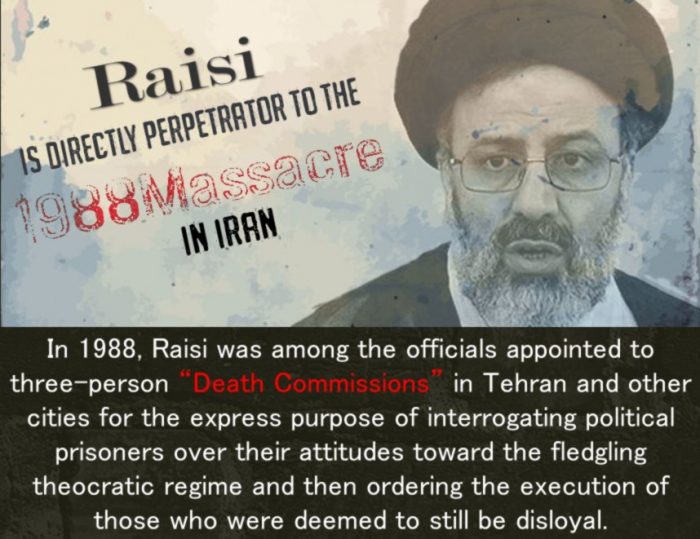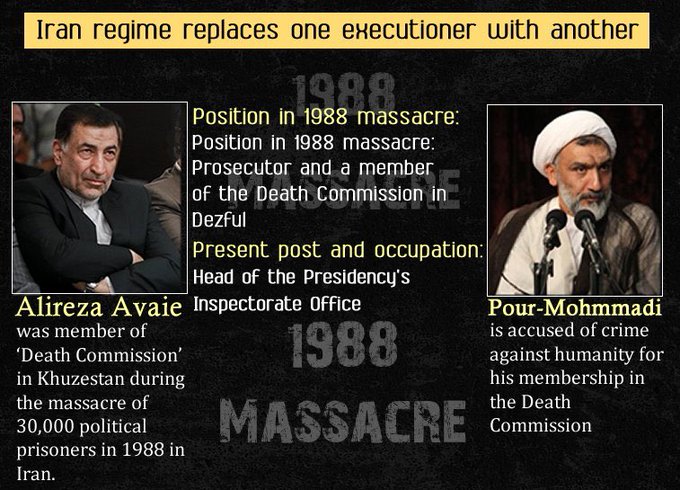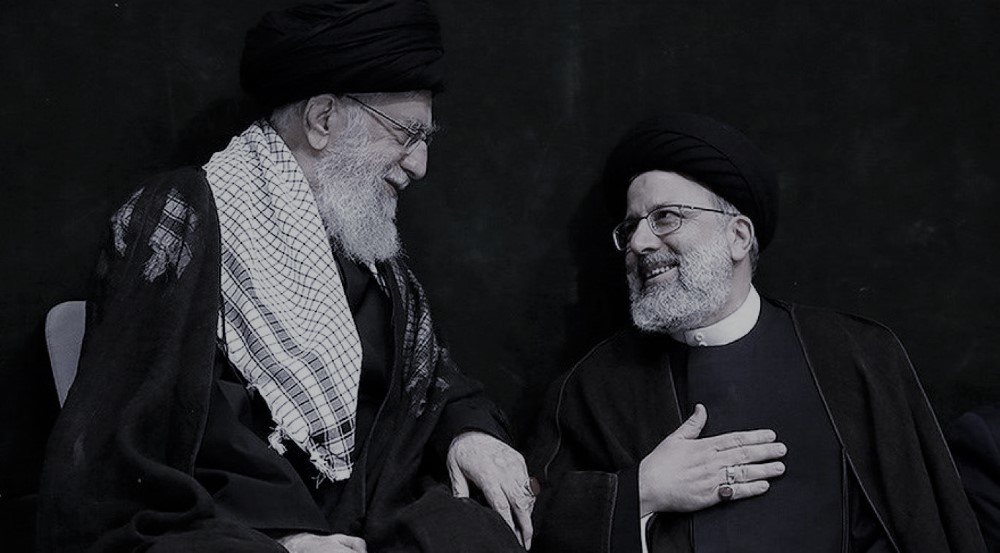Ebrahim Raisi is almost set to succeed Hassan Rouhani as Iran’s next president. Six other candidates have been vetted by the regime’s Guardian Council to run in the June 18 election, but Raisi is Supreme Leader Ali Khamenei’s favorite, and none of the others have received quite as much attention. The National Council of Resistance of Iran (NCRI), and the People’s Mujahedin of Iran (PMOI / MEK Iran), reported that the Guardian Council ensured this by excluding potential candidates such as Mahmoud Ahmadinejad, the regime’s previous president, and Ali Larijani, the former Speaker of Parliament.

Earlier on, when more than half of eligible voters boycotted the polls in February 2020, it proved the viability of a regime-change movement that had gained momentum since the beginning of 2018.
It was the People’s Mojahedin Organization of Iran (PMOI/MEK) that was credited with starting major protests in more than 100 cities across Iran in support of regime change.
Raisi had long been known as one of the country’s most prominent hanging judges and a vocal supporter of amputation and other forms of corporal punishment. All of this served to cement his legacy as a participant in the 1988 slaughter of political prisoners, which occurred at a time when the religious dictatorship was particularly vulnerable.

Ruhollah Khomeini, the regime’s founder, issued a fatwa in 1988 declaring the MEK to be God’s enemies and calling for their execution.
As a result, “death commissions” were organized in prison around Iran to question political detainees about their political opinions and affiliations, with a particular focus on the MEK.
Those who refused to repudiate the group or otherwise failed to demonstrate devotion to the theocratic regime were sentenced to be hanged and the victims were usually executed in groups before being transported in refrigeration trucks to be buried in secret mass graves.

Raisi, who was the deputy prosecutor for Tehran at the time of the massacre, had a key part in the death commissions’ operations and is thought to be responsible for the great majority of the 30,000 killings.
He and the other participants have not been held accountable for this blatant crime against humanity, and his potential role as the country’s next president shows that the dictatorship continues to reward human rights violators for their brutality and intolerance of opposition.

The Iranian people are making a clear message about the illegitimacy of the ruling establishment by rejecting the entire voting process.
Even in normal conditions, this would have put them at risk of ruthless persecution. However, the threat of political violence has grown in the aftermath of the November 2019 crackdown, with Raisi’s ruthless attitude to law enforcement having just been rewarded with an unobstructed path to the presidency.

The boycott’s enormous support is thus a testimony to the Iranian Resistance’s tenacity as well as a warning about the international community’s responsibility.
Western powers should make it absolutely clear that they are aware of Raisi’s crimes, both past, and present, and that the government should be held accountable for those crimes as well as the oncoming upheaval.

MEK Iran (follow us on Twitter and Facebook)
and People’s Mojahedin Organization of Iran – MEK IRAN – YouTube








